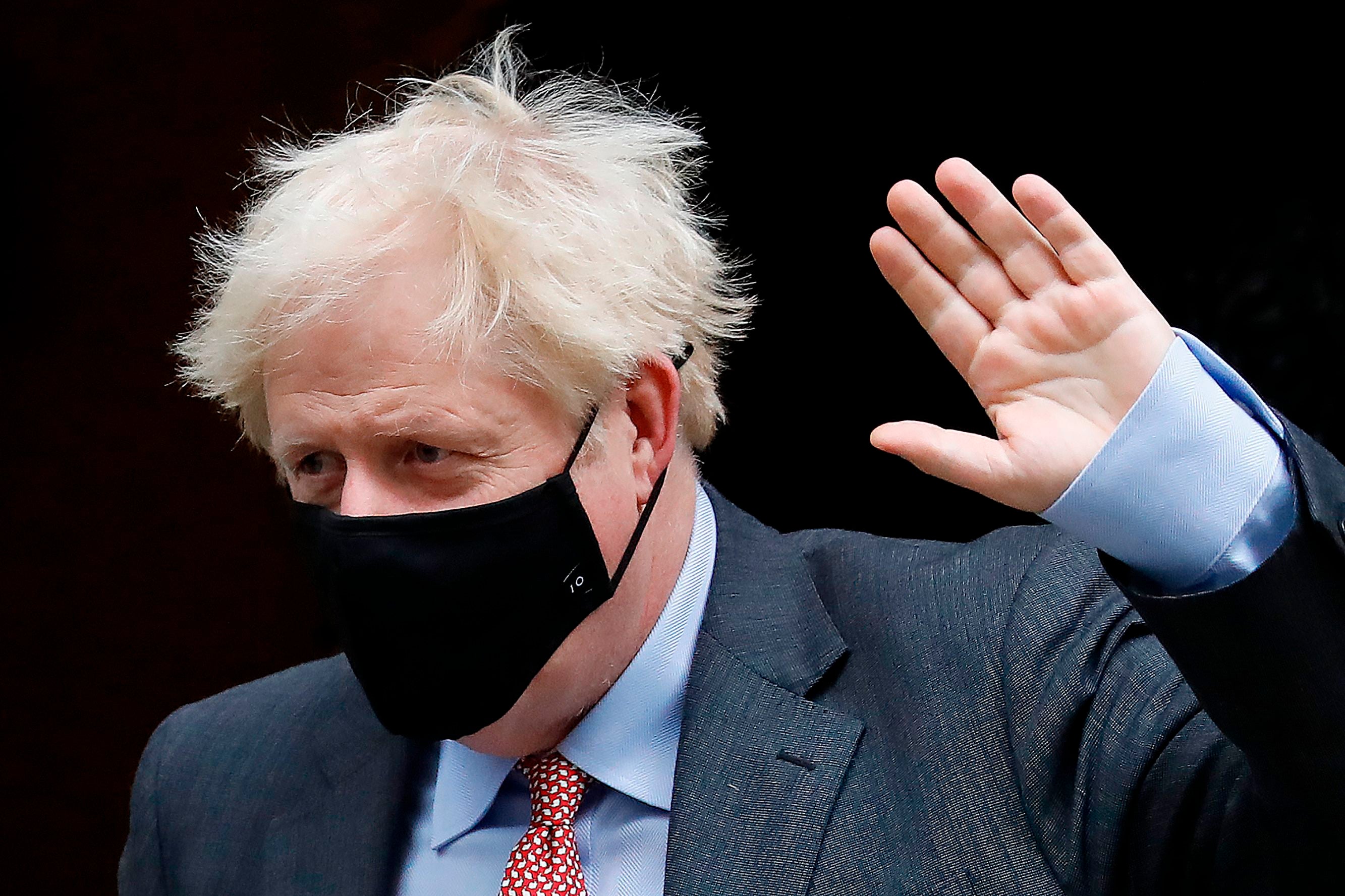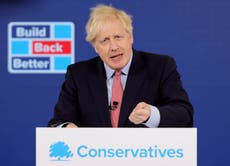Trouble ahead for Boris Johnson as Tory MPs chafe against coronavirus rules
The government easily saw off a rebellion in the Commons last night but has postponed another, potentially more embarrassing, vote planned for today, writes John Rentoul


The rumbling rebellion among Conservative MPs over coronavirus rules has not yet erupted into a serious challenge to the prime minister’s authority. Last week, Sir Graham Brady, spokesperson for Tory backbenchers, declared himself satisfied by promises from Matt Hancock, the health secretary, that future changes to national rules would be put to a vote in parliament if possible.
Last night, a revolt against the regulations imposing the “rule of six” was easily defeated. The rebels wanted children under 12 to be excluded from the rule, as in Scotland and Wales. Sir Graham, chair of the Tory backbenchers’ 1922 Committee, led the defiance of his party’s whip.
However, the rebellion was threatening enough to persuade the government to postpone the vote planned for today on the law requiring pubs and restaurants in England to shut at 10pm.
Sir Graham and his allies were hoping to rally greater numbers today against this measure, because Labour has hinted that it might vote against.
Keir Starmer has not said he opposes the early closing, but his shadow ministers have asked to see the evidence on which it is based, suggesting that they do not think it is justified. On the other hand, Labour is generally in favour of stricter measures rather than relaxing the ones already in place.
If the government can persuade the rebels that they face a choice between 10pm closing time and closing pubs down altogether, this rebellion too is likely to run into the sand. If, on the other hand, Labour and the Tory rebels do seem ready to unite against the measure, the government is likely to seek a compromise.
These are what might be called normal parliamentary revolts. They are not like the great questions of our place in Europe and the tension between a referendum mandate and parliamentary democracy that convulsed the House of Commons between 2016 and 2019. These are ideological differences pursued by standard parliamentary tactics.
There is a large group of Tory backbenchers who are libertarian-minded. In general, they believe the government has reacted to coronavirus in a heavy-handed, authoritarian and often ineffective way. Had things worked out differently, Boris Johnson would be one of them, urging his colleagues on through his columns in The Daily Telegraph, full of references to knocking the skin off rice puddings.
There may be enough of them to wipe out the government’s majority – although this is complicated by the rules for votes on measures that affect England only. On UK business, the government has a working majority of 85, but on coronavirus regulations, which apply only in England, Scottish MPs do not vote, so the government’s majority is much greater. The government was not facing defeat, therefore, but obviously did not want large numbers of Tory MPs to get into the habit of voting against the whip.
In any case, the rebels can only begin to threaten the government’s majority if they have Labour’s support. That is where the tactics of normal rebellions come into play. Usually it is the so-called right wing of the Tory party and the so-called left wing of the Labour Party that are most likely to vote against their parties’ instructions, and they are most likely to be ineffective because they find it hard to make common cause with MPs in other parties.
That is why effective parliamentary revolts tend to be on centre-ground questions, or cross-cutting ideological issues, or the result of brutally cynical opportunism. Tony Blair was defeated on 90-day detention by civil libertarians of the right and left. Margaret Thatcher was defeated on the question of Sunday trading, as Tory traditionalists allied with Labour MPs defending shopworkers’ rights. John Major was defeated by an unholy alliance of Tory Eurosceptics and the Labour Party under John Smith, a Europhile who nevertheless saw his chance.
The coronavirus regulations have upset a majority in the Commons, which is united by the principle that MPs should vote on them before they come into effect, but so far there has not been a majority against any specific measure. It will be difficult to construct one, not least because the situation keeps changing.
While the government continues to postpone the vote on early pub closing, the figures on cases and hospitalisations are likely to change – whether they get worse or better, the regulations may well be changed before the rebellion takes place.
But those new rules will have to come to parliament for approval before they come into effect, if the government is to keep its promise. So there is plenty of scope for rebellions yet.





Join our commenting forum
Join thought-provoking conversations, follow other Independent readers and see their replies
Comments